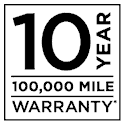
How To Identify Kia Oil Pressure Issues
Oil pressure is a critical aspect of your Kia vehicle's engine health and performance. It ensures that engine components are adequately lubricated, preventing friction and overheating. Low oil pressure can lead to serious engine damage, making it essential to identify and address any issues promptly. In this article, we will explore professional techniques for identifying Kia oil pressure problems to ensure the longevity and reliability of your vehicle.
Common Signs of Oil Pressure Issues
Detecting oil pressure problems in your Kia can prevent costly engine repairs. Here are some common signs to watch out for:
- Dashboard Warning Light
The most immediate indicator of low oil pressure is the illuminated oil pressure warning light on your dashboard. If this light appears while driving, it's crucial to address the issue promptly.
- Engine Noise
Low oil pressure can result in unusual engine noises, such as knocking or tapping sounds. These noises may become more pronounced when the engine is under load.
- Reduced Engine Performance
A lack of proper lubrication due to low oil pressure can lead to reduced engine performance and responsiveness.
- Overheating
Inadequate lubrication can cause increased friction and heat within the engine, leading to overheating issues.
- Poor Fuel Efficiency
Low oil pressure can contribute to decreased fuel efficiency, costing you more at the pump.
- Smoke from the Exhaust
Excessive smoke from the exhaust can be a sign of oil pressure problems and should be investigated promptly.
Common Causes of Low Oil Pressure
Understanding the potential causes of low oil pressure in your Kia can help you pinpoint the issue:
- Low Oil Level
Insufficient oil in the engine can result in low oil pressure. Regularly check and maintain the proper oil level according to your vehicle's specifications.
- Oil Leaks
Oil leaks from the engine, oil filter, or oil cooler can deplete the oil supply and lead to low oil pressure.
- Worn or Clogged Oil Filter
A clogged or deteriorated oil filter can restrict oil flow, causing low oil pressure.
- Oil Pump Problems
A malfunctioning oil pump may fail to circulate oil adequately, resulting in low oil pressure.
- Oil Viscosity
Using the wrong viscosity or low-quality oil can affect oil pressure. Ensure you use the recommended oil grade for your Kia.
Professional Techniques for Identifying Oil Pressure Issues
If you suspect low oil pressure in your Kia, follow these professional techniques to diagnose and address the problem:
- Check Oil Level
Start by checking the oil level using the dipstick. If it's below the recommended level, add the appropriate amount of oil to bring it within the specified range.
- Inspect for Leaks
Examine the engine, oil filter, and oil cooler for any signs of oil leaks. Address any leaks promptly and replace damaged components.
- Replace the Oil Filter
If your oil filter is clogged or worn, replace it with a new, high-quality filter that meets your vehicle's specifications.
- Verify Oil Pressure
Have a professional mechanic perform an oil pressure test to determine if the pressure falls within the recommended range for your Kia.
- Oil Pump Inspection
If the oil pressure remains low after other checks, a comprehensive inspection of the oil pump may be necessary. Consult a qualified technician for this evaluation.
- Use High-Quality Oil
Ensure you are using the correct oil viscosity and a high-quality oil that meets the manufacturer's specifications.
Regular Maintenance and Monitoring
To prevent oil pressure issues, follow your Kia's recommended maintenance schedule. Regular oil changes and inspections can help maintain proper oil pressure and engine health.
In summary, maintaining adequate oil pressure is crucial for the proper functioning and longevity of your Kia's engine. By recognizing the signs, understanding the causes, and using professional techniques, you can identify and address oil pressure issues promptly, ensuring a reliable and efficient vehicle. Always consult a qualified mechanic for comprehensive diagnostics and repairs when needed.


 Warranties include 10-year/100,000-mile powertrain and 5-year/60,000-mile basic. All warranties and roadside assistance are limited. See retailer for warranty details.
Warranties include 10-year/100,000-mile powertrain and 5-year/60,000-mile basic. All warranties and roadside assistance are limited. See retailer for warranty details.